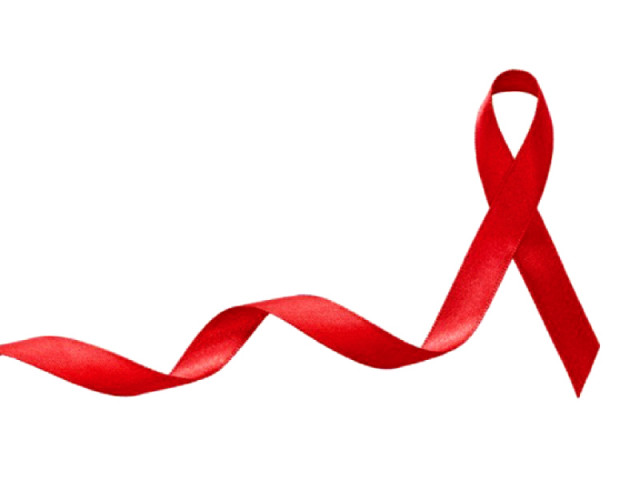A black hole: When your husband is HIV+ive but you don’t know
Samina’s husband, a drug addict, was diagnosed; told that he will get better with treatment

Eighteen-year-old Samina, her mother-in-law and a five-year-old son Abdullah were all waiting at the Family Health Care Centre in Hayatabad Medical Complex (HMC) for her husband’s HIV test result.
Samina’s sunken eyes could be seen tearing up as she repeatedly pushed for answers but with little success. Clarity was not for Samina; the doctor shook his head and told her not to worry: “Gulshad’s test was clear and he will be healthy soon enough if his course of treatment is followed properly.”
What Samina did not know was that the doctor was not being truthful. In a misplaced bid to not worry the obviously scared woman, he took an executive decision to not tell her that 32-year-old Gulshad tested positive for HIV. He later told The Express Tribune it was routine practice to not tell family members and even the patient of the reality of their situation as it “causes panic”. A common and fatal mistake made in hospitals across Pakistan. He did not mention if the patient had contracted AIDS as yet.
Nonetheless, Samina could see something was terribly wrong with her husband, who is a drug addict.
He was missing from home for six months, she said. “When he came back after six months, Gulshad was in a terrible condition,” said Samina. He is now admitted at Lady Reading Hospital, she added.
What life may bring
Samina was only 11-years-old when her parents married her to Gulshad.
“My husband was very healthy and very handsome,” she said, tears rolling down her cheeks. “He used to sell fruits on a pushcart at Firduos Chowk.”
Only seven years later, Samina’s life has changed beyond recognition. “Now I am a mother of three children, two sons and one daughter, and there is no one except me to earn for them.”
She works as a cleaner in a madrassa, “they pay me Rs3,000 per month.” With that sort of money, Samina can barely afford to feed her family, let alone foot her husband’s medical bills. She appealed to philanthropists to come forward and help her family.
The cost of HIV/AIDS
According to a news report from December 2, the Ministry of Inter-provincial Coordination, Monitoring and Evaluation, there are two free HIV/AIDS treatment centres in Peshawar (the Family Health Care Centre at HMC) and another in Kohat, set up with the help of the National AIDS Control Programme. These two centres are frequented by people from across the province, the tribal belt and Afghanistan.
The cost of treating one HIV patient at any one of these centres comes up to roughly $300. These centres offer screening tests and medication; if a patient needs to be admitted, there are no special wards anywhere for patients who need hospitalisation.
Drug addiction and AIDS
This is not only Samina’s ordeal; according to the United Nation Office on Drugs and Crime Report 2013, Khyber-Pakhtunkhwa has the highest rate of drug use in Pakistan, at 10.9%, that is 2,376,000 people of the adult population using drugs.
According to Azaz Khan, an official of Dost Welfare Foundation, at least 100,000 drug addicts in Peshawar inject drugs. Of these, 20,000 are HIV positive.
Talking to The Express Tribune, an assistant professor and dermatologist, Dr Rahim, said 10 to 15 people visit the Family Care Centre every day to get tested for HIV/AIDS. “Previously, only 10 to 15 people would get checked per month but now the number has increased.”
Rahim did not share current incidence of patients with HIV, only saying the number of patients is very high in Peshawar. However, he confirmed, since 2005 around 1,600 HIV/AIDS patients have been registered at the HMC centre where they get medicines from.
The doctor reiterated there are currently only two centres in all of Khyber-Pakhtunkhwa for screening—the two in Peshawar and Kohat—and are run with the support of Global Fund to Fight Aids and World Health Organization.
From low incidence, to concentrated to what?
According to the December 2 news report, Pakistan had gone from a low-prevalence high-risk country to one which is at the ‘concentrated phase’ of the HIV/AIDS epidemic (National AIDS Control Programme, 2013).
However, an HMC official said on condition of anonymity, the number of HIV/AIDS patients has increased from 20,000 in the province. Every day, at least five to seven HIV positive patients visit the hospital. He confirmed there are no specific wards in hospitals in all of K-P for these patients.
“With the exception of one senior doctor at LRH, no other medical professional treats HIV/AIDS patients,” said the HMC official. There are no wards and no medicines available for them at LRH. “The K-P government does not do much to manage the disease,” he stated.
Published in The Express Tribune, September 30th, 2014.













COMMENTS
Comments are moderated and generally will be posted if they are on-topic and not abusive.
For more information, please see our Comments FAQ